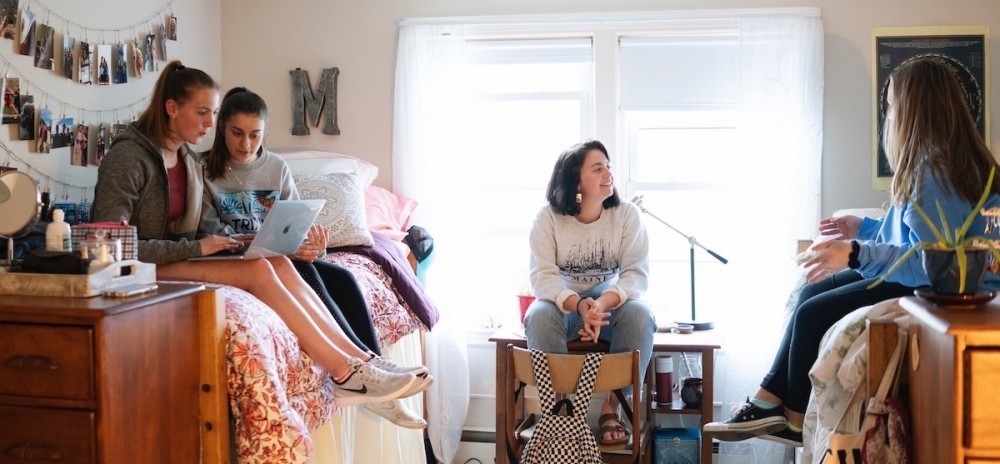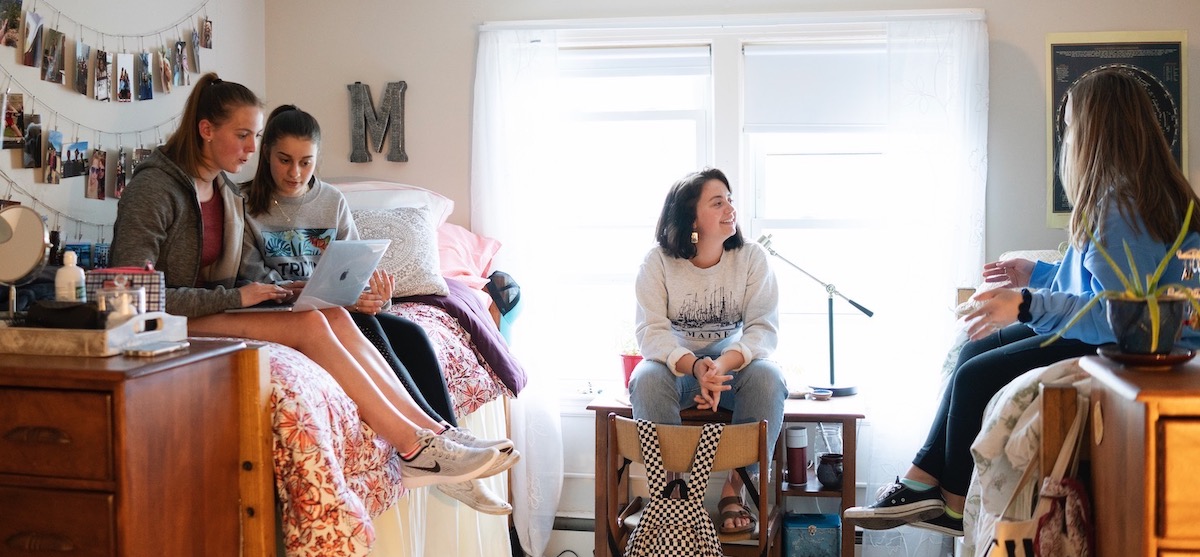- Our School
- Our Advantage
- Admission
- Elementary•Middle School
- High School
- Summer
- Giving
- Parent Resources
- For Educators
- Alumni
« Back
What It’s Like to Be a Writer With Dyslexia
March 8th, 2020
"She’s lazy” and “she doesn’t work hard enough” are two sentences I’ve heard from educators on why school was difficult for me.
The reality wasn’t simply that I didn’t have the resources that suited my learning style to help me reach my full potential as a student. Now, as an adult, I often fear this is how my employers view me as I adapt to working with my learning disabilities. I am lucky to have formed a support group of ladies who are willing to take time out of their day to look over a piece or a pitch for errors before I send it off, but I can’t help but wish I didn’t need to reach out to others to proofread my work. Why can’t my brain just spot errors on its own? Why must the one talent I have and love face such a huge hurdle?
I have fond memories of pure excitement when my mom would read me a book right before bed. I loved hearing stories and imagining them playing out in my head. I also enjoyed the quiet moment of bonding with my mother through stories. I couldn’t wait to be able to read on my own. Toward the third grade, however, it became apparent that it wouldn’t be as easy as I thought. Sounding out and reading certain words was hard, because what I saw was completely different than what was actually on the paper. Even though I’d read an entire passage, I couldn’t comprehend it. As my grades started to slip, I felt less confident as a student. My mother did everything to figure out the reason I was falling behind. She placed me in tutoring sessions, made sure I had extended time for exams, and advocated for me with teachers, but educators still often felt I just wasn’t working hard enough. We didn’t know where exactly my learning disabilities were stemming from or how to address them.
In high school, I was finally diagnosed with dyslexia—specifically difficulty with decoding, reading comprehension, and spelling. It was a relief that I finally figured out exactly how this was affecting me, but the stigma that I wasn’t as smart as everyone else was still there. Though reading was difficult, I learned to find joy in reading books and writing my own stories. Living in my head and dreaming up stories gave me a sense of peace when everything around me felt chaotic. I lived with the pressure of wanting to perform well. When a teacher called on me to read a passage, I would become anxious and read ahead, just to make sure I could read it correctly and not scramble the words. I lived in fear of my classmates making fun of me for reading simple words like “then” but seeing “them” and not grasping right away why it was incorrect.
"Though reading was difficult, I learned to find joy in reading books and writing my own stories. "
Despite my guidance counselor’s dissuasion, I went on to a four-year university, where I received an A in a notably difficult course. My professor expressed that it’s extremely hard for first-year students to ace Rutgers English courses and that I should consider entering my essay in a writing competition. I didn’t enter my essay in the competition, because I lacked confidence in my writing. I still have many regrets about not submitting that essay. Along with my writing and reading struggles, I had difficulties in math and science. My grades were dropping, and depression set in. I was determined to figure out strategies to get back on track and graduate. I learned how important it is to attend office hours when you’re a number in a big university. I took a speed-reading course that helped me identify keywords when taking tests, and I taught myself how to study in a way that benefits my learning style.
After graduating from college, I didn’t realize how much my learning disabilities would continue to be a challenge when I entered the real world, especially as a writer. I will never forget one major mixup after I completed an internship. An editor sent me a story assignment to interview a rap duo. I misread the email, went to interview the group, transcribed it, and then only afterward did I realize I had misread the email and interviewed them on the wrong topic. The deadline was approaching, and the publicist declined to let me re-interview the duo. The assignment was ultimately killed. I was devastated and thought I wouldn’t have a career as a journalist.
My fear has always been that an editor won’t enjoy working with me due to little errors I’m unable to spot because my mind can’t comprehend the mistake. I have pondered the idea of mentioning my disability to the editors I’m pitching. There hasn’t been much discourse on adults with disabilities and the difficulties of functioning as a freelancer.
Even with the many mishaps, spelling errors, and scrambled words, however, I am a published writer. I have several pieces in many publications that I am proud of. Every article reminds me of the winding journey that took place, from pitching to writing to getting published.
As an employee, I’ve been in positions where I was expected to multitask and work at a fast pace. I’m a quick learner in many areas, but I like to take my time to ensure I’m not making careless mistakes. Most employers would prefer that we work fast and complete as many tasks as possible, but when I do that, unfortunately, I often make many errors. This has caused me to lose many jobs, even as a hostess and receptionist. Readers might think I’m not a competent employee, but this actually causes me to be more careful and pay closer attention, arguably making me a better worker. Processing many things at once takes me a lot longer, and words and numbers often get scrambled, which causes many mistakes on my end, so I have learned to take my time and always double-check my work.
I never imagined that, post-college, I would continue to combat my learning disabilities. I didn’t think they would hinder my ability to complete tasks or fulfill my dreams. Even with the many mishaps, spelling errors, and scrambled words, however, I am a published writer. I have several pieces in many publications that I am proud of. Every article reminds me of the winding journey that took place, from pitching to writing to getting published.
As I reflect on my hardships, I know I’m not alone in this struggle. Many public figures, writers, readers, and so on have the same uphill climb to overcome and deal with dyslexia and reading comprehension problems. Today, reading is still a struggle, but that doesn’t change how much I love it. Reading nonfiction and short stories still brings me the same joy it did when I was a little girl reading with my mom. Using my imagination still helps me escape the chaos and find peace within myself. I will never allow my struggles to stop me from achieving my goals or quiet my voice.
Author
Brittny Pierre is a Chicago-based culture writer, focusing on music, personal essays, and pop culture. She has been published with Vibe magazine, Bustle, Zora, and Shondaland.
Posted in the category Learning Disabilities.























